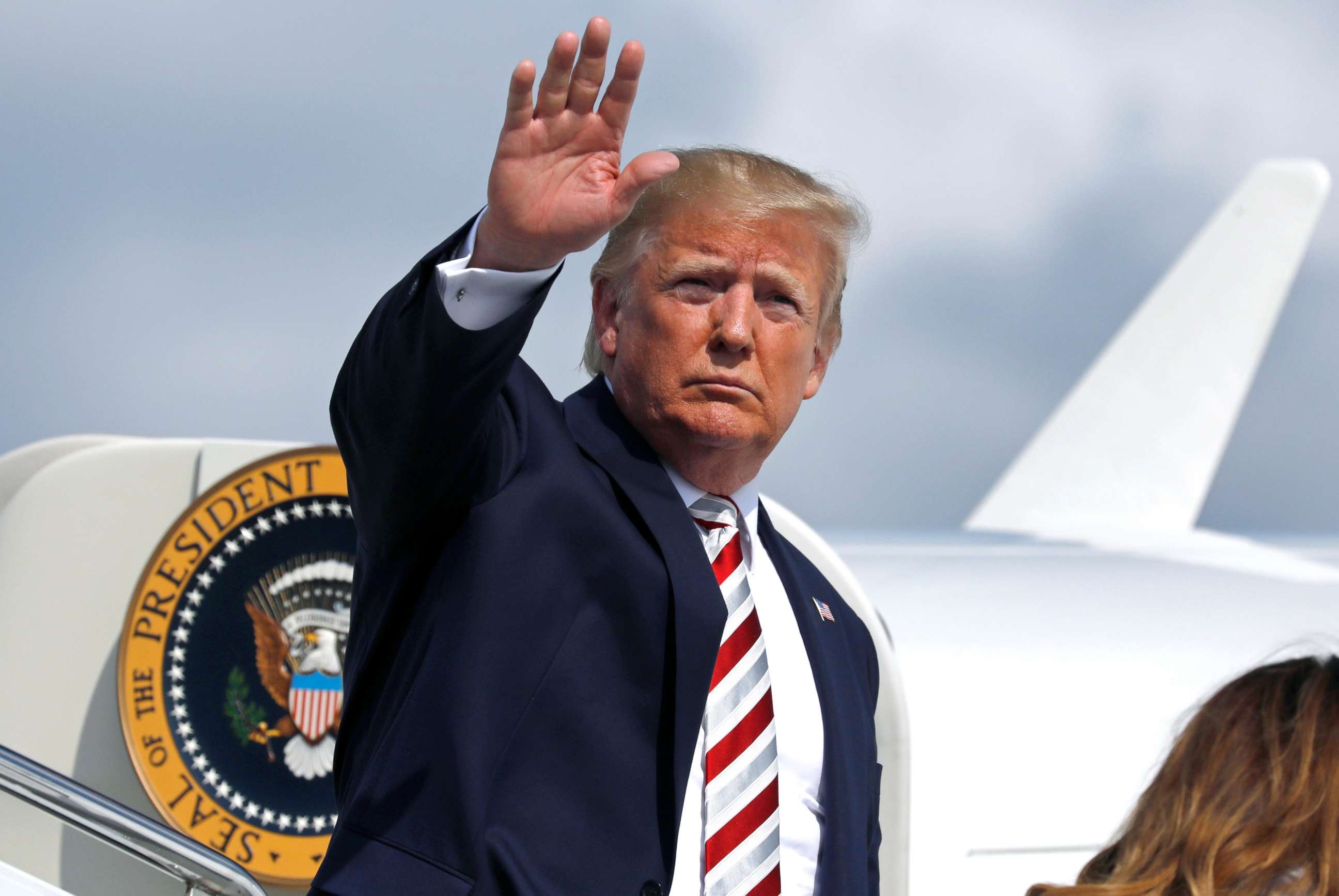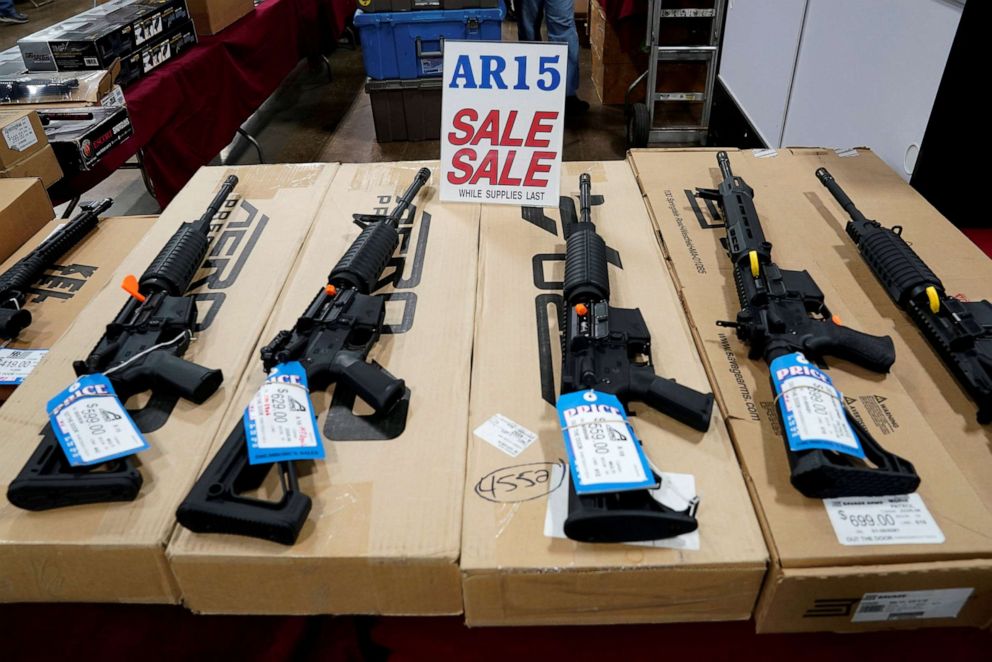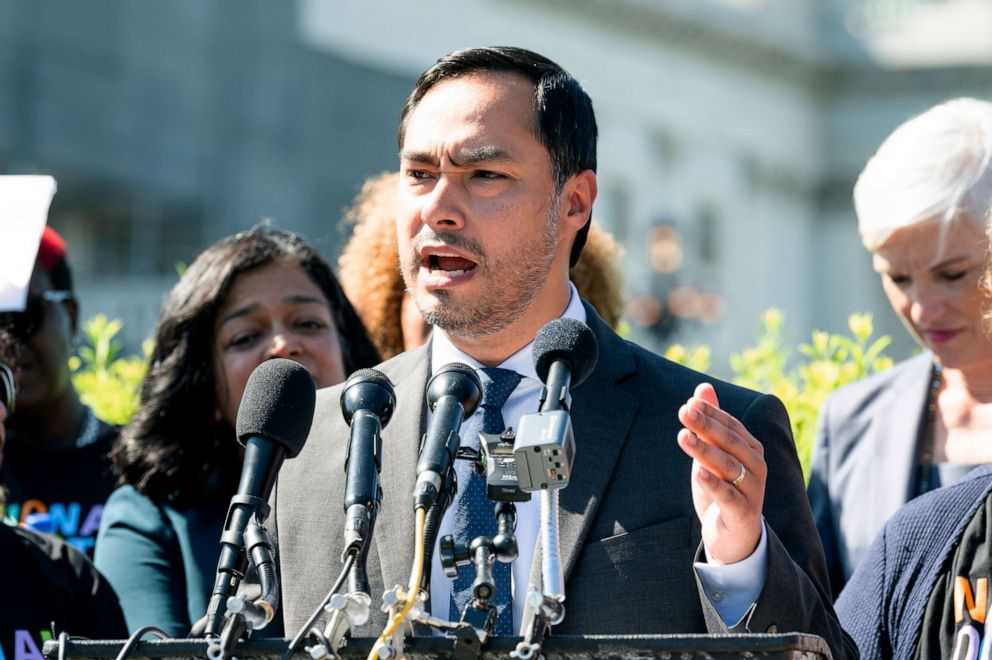The Note: Trump challenged to heal where he's not entirely welcome
Can a president who's sowed so many divisions help a nation heal?
The Take with Rick Klein
Can a president who's sowed so many divisions help a nation heal? And does he really want to?
Those are among the big questions confronting President Donald Trump on a very big day for his presidency. His trips to Ohio and Texas on Wednesday will be among the most scrutinized of his time in office, as economic uncertainties and foreign policy challenges also demand his attention.
Trump will be going places he's not totally welcome, and will be hoping to deliver messages that don't seem totally natural.

The wounds are raw, and the memories of Trump's previous words in El Paso and beyond remain fresh. Since this year began, the Trump campaign ran more than 2,000 Facebook ads that include the word "invasion" in the context of immigration and the border wall, declaring it to be a "crisis" and a "national emergency."
This week has reset the Democratic race for president, with multiple candidates using the shootings over the weekend to insert urgency into their campaigns.
This moment, though, belongs to Trump. It may be too late for him to reset perceptions of himself as president, but Wednesday provides the kinds of opportunities other presidents have owned.
The RUNDOWN with MaryAlice Parks
The last few days have seen a renewed conversation about so-called red flag laws. Both the president, his daughter Ivanka Trump and some top-tier Republicans have expressed interested again in the concept.
At a high level, the term refers to a group of diverse state laws that enable family members to petition law enforcement for expanded protection orders against individuals perceived to be risks for hurting themselves or others. The protection orders, if granted, could bar the individual from purchasing firearms or even allow for an individual's guns to be temporarily confiscated.
According to Everytown for Gun Safety, which advocates for stricter gun reform measures, about half of those who commit mass shootings -- and even more who commit school shootings -- show "warning signs." Of course, that means half do not necessarily show signs. But the argument from gun safety activists is that stopping any gun violence is a step in the right direction.

Momentum for these types of state laws picked up after the Parkland, Florida, school shooting in 2018. Today, 17 states and Washington, D.C., have laws like these on the books. New federal proposals would essentially provide funding and incentives for states to pass laws of this sort.
A lot of these laws are new, but some doctors point to early evidence that they have reduced gun-related suicides.
The NRA on Tuesday reiterated its support, too, for this type of legislation, though many elected officials remain skeptical of plans that could treat select individuals differently than others.
Though Congress is in recess, pressure from activists and local leaders for Washington to do something is clearly reaching a boiling point.
The TIP with Will Steakin
A tweet by Democratic Rep. Joaquin Castro, the brother and campaign chairman of former Housing and Urban Development Secretary Julian Castro's 2020 campaign, ignited a firestorm after the congressman posted the names and employers of 44 prominent Texas Trump donors -- a move the Trump campaign is calling an incitement to harassment, if not worse.
Trump campaign staffers, Republicans and even members of the press took to Twitter condemning Rep. Castro's tweet. And the Trump campaign told ABC News that they've reported the tweet to Twitter based on the platform's abuse and harassment provision.

"Democrats want to talk about inciting violence? This naming of private citizens and their employers is reckless and irresponsible. He is endangering the safety of people he is supposed to be representing," Tim Murtaugh, the Trump campaign communications director, told ABC News.
In response to the backlash, Joaquin Castro wrote on Twitter that "no one was targeted or harassed in my post," adding that he will "stop mentioning Trump's public campaign donors" if the president "stops using their money for ads that fuel hate."
Castro's 2020 campaign declined to comment further. However, while the information is available through FEC filings, it's unusual for a campaign to share a list of names and employers of donors to a political rival, and it could be seen as a threat to those donating to the Trump campaign -- especially given the current political climate.
THE PLAYLIST
ABC News' "Start Here" podcast. Wednesday morning's episode features ABC News Deputy Political Director MaryAlice Parks, who details the background check legislation being pushed by lawmakers in the wake of the reecnt shootings in Ohio and Texas. Then ABC News Senior National Correspondent Matt Gutman explains the new sanctions that the Trump administration just slapped on Venezuela. http://apple.co/2HPocUL
WHAT YOU NEED TO KNOW TODAY
Download the ABC News app and select "The Note" as an item of interest to receive the sharpest political analysis every weekday.
The Note is a daily ABC News feature that highlights the key political moments of the day ahead. Please check back tomorrow for the latest.




